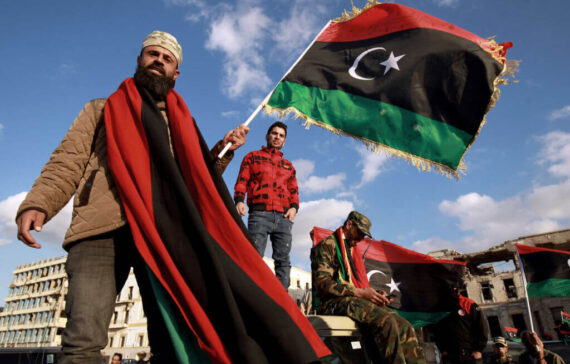Speaking in an interview with the website of the Strategic Council on Foreign Relations, Sabri Anousheh, while referring to the siege of the Libyan Prime Minister’s headquarters in Tripoli by armed militants and the UN warning that military and security moves in the city could lead to clashes, noted: Libya is now experiencing neither war nor peace condition, and until domestic and foreign actors will not reach an agreement, the unrest will continue.
He added: Under the current situation, we are witnessing a kind of tension and war among the militias in Libya, which is mostly a power struggle among the tribes and families that are present in or around Tripoli. Disagreements among the tribes have widened over Libya’s decision to hold the elections, and support of foreign countries for the tribes has increased the possibility of unrest.
Referring to France’s support for Haftar, as well as the covert support of some countries for Saif al-Islam Gaddafi and the help of some large tribes and elites of his father’s era for him, the analyst of West Asia affairs said: The militants who surrounded the prime minister’s residence in Tripoli were forces close to Abdul Basit Marwan, who was for years the head of the Tripoli military district but was ousted following a decree issued by the Presidential Council. However, some sources described the militants as government forces and security guards.
He pointed to the remarks of the Libyan parliament’s spokesperson on the focus on the six-month postponement of the elections and continuation of the comprehensive dialogue among the parties, as well as the criticism of the Persian Gulf Cooperation Council on the postponement of the elections scheduled for December 24 and continued: Although recent tensions have not been so violent, they have been significant given the country’s decision to hold the elections.
Explaining the positions of the parties involved in Libya and the various issues that have caused such tensions in the past 10 years after the fall of Gaddafi government, the former diplomat said: Although the decision to hold the elections was the result of several political processes and negotiations, the election has now been postponed and there is still no clear vision for the election.
Saying that there are several parties that do not want Libya to return to peace and tranquility, Anousheh added: If Libya returns to its natural oil production, which was about 1.6 million barrels per day, it will have an impact on the global oil market and oil companies. The benefit of some international powers, regional and domestic actors, is in that Libya always be at war and in tension, because it is in this context that they can take advantage of the volatile market of that country by maintaining their influence and power.
He cited the resignation of Jan Kubis, the UN special envoy for Libya, 18 days before the December 24 elections, as a sign of frustration with any agreement among the domestic sides and said: It will negatively affect the election process and show its unsatisfactory situation.
The Africa affairs analyst, referring to the concerns about strengthening of the foreign side in that country which, on the other hand, have challenged the Libyan interim government, addressed the recent clashes between Haftar’s supporters and the National Unity government and clarified: The majority of the people hate the past figures who have played a role in the tensions in the past 10 years, such as Haftar, Aqila, Saif al-Islam Gaddafi and Abdul Hamid Dbeibah. Unfortunately, those figures are still candidates in the elections.
Anousheh referred to the role of the United States in the developments in Libya and said: The Supreme Council of the Libyan government, due to the sit-in protesters to the current election process, has proposed that the date of presidential election be postponed from December 24 to the month of February; however, given the situation in Libya and the tensions that we are witnessing now and before the elections, it seems that the hasty elections in that country will not reach any conclusion. As we have seen in the past 10 years that elections have been held, but their holding has doubled the tension in that country.
He continued: After the 2014 elections, Libya reached the condition of a two-state country, and in December 2015, when Mr. Sarraj’s government took shape in Morocco, with the opposition from the East, there was a war going on between the East and the West. Therefore, what is important is the agreement between the Libyan people and the elite to resolve the issue among themselves. Holding the elections alone not only will not solve the problems, but will complicate the situation.
Referring to the UN resolutions in support of the elections in Libya, as well as the fruitless conference in Paris, Anousheh stressed: In such a situation, the war will continue and the victims are the Libyan people who were displaced and killed during the war.










0 Comments